Too big to fail.
Just like Wasps and Worcester, London Irish were just too big to fail.
A few months shy of their 125th anniversary, after a fifth-place finish in the Premiership, Irish entered administration.
At one stage unthinkable, the clouds closed in quickly in the past week.
But the rumblings sounded three months ago with reports suggesting there was concern about the ability to pay wages.
That issue was sorted at the time but, in the wake of both Wasps and Worcester going under, the prospect of a third club in serious trouble, became increasingly viable.
Owner Mick Crossan was open to selling up the club, which even back in March was feared to be running with a low turnover and a high debt but a rumoured takeover by an American consortium never materialised.
Amidst the uncertainly came the death spiral: a winding-up petition from the revenue, an RFU deadline for wage payment missed, suspension and finally administration.
Speaking after Irish secured fifth spot in the table with victory over Exeter at the start of May, Declan Kidney, director of rugby, sounded positive.
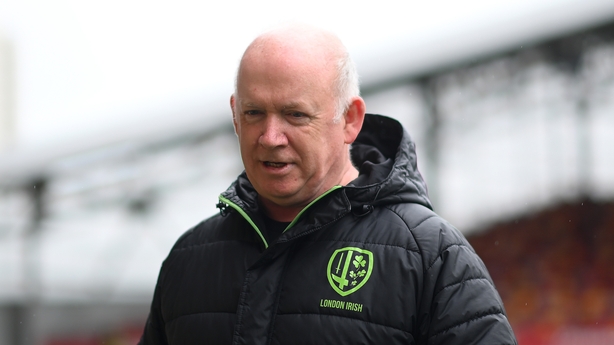
"I'm delighted for everybody in the organisation, we said we would control what we can control and that’s what we did today," said the former Munster and Ireland head coach.
"There’s a rich future for this club on the pitch and I’m sure the people off the pitch will do the business, they just need a bit of time to see it through.
"You see the measure of people in adversity. Our leadership have been magnificent, it never interfered with training or team meetings. The players have been brilliant, but so have coaches and the off-field team because it affected everybody."
To go from that optimistic outlook to administration in the space of a month is jarring.
Conor Gilsenan, who came through the Leinster academy and spent time at Connacht, moved to London Irish in 2014 and played for the Exiles for six seasons, making 70 appearances in the back row.
Like everyone else, the word, as it filtered through, came as a surprise to the Mullingar man.
"I got the news the same time as everyone else, leading into the last game of the season against Exeter," the 30-year-old told RTE Sport.
"Obviously, it was very worrying. There were quite a lot of bad news stories coming out throughout the year about the financial stability of the club so it wasn't a total shock but I never envisaged it going down this path so quickly.
"I always thought they'd find a solution to it, it was too big of a club with too big of a history and going so well on the pitch to not figure it out."
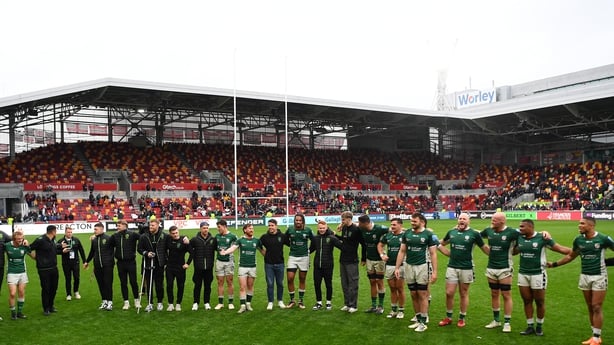
To lose one club might be considered unfortunate, two careless but three surely points to a systemic problem.
How did it get to this? What went wrong in England?
"It's not just a London Irish problem. I think [most] of the clubs are running at a loss and just some clubs are running at a bigger loss than others," said Gilsenan.
"Probably, if you look at London Irish's situation, we are effectively rent tenants in [the Gtech] stadium.
"I haven't looked at the profit and loss but I would imagine that hurts us quite significantly and how much money we take home when we play a home game.
"We've invested very, very heavily in the squad, which has paid dividends in the performance on the pitch but then has obviously hurt us in terms of financial stability so, it's a bigger problem that just London Irish.
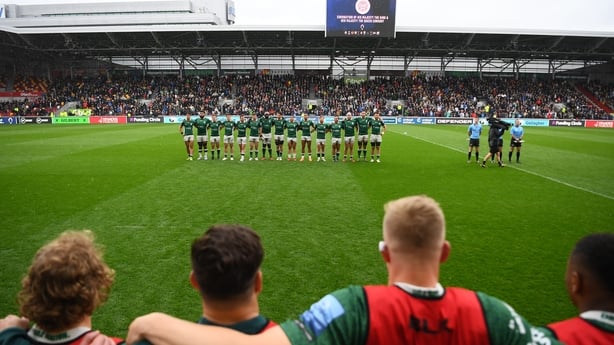
"From the outside looking in, it definitely feels like, the fact that the RFU haven't intervened in any of it, there has to be some sort of a greater plan in play. It's gotten pretty ugly. There's 150 players and staff without jobs.
"It's savage, but in terms of how it got so bad, English rugby...there has to be a restructure in how it's put together and reformed.
"The sad thing is think London Irish will be the last victim of it and they will get their act together now because you've seen there was two independent people from the [Department for Culture, Media and Sport] put in to review the financial stability and help reform the whole league so this doesn't continue to happen.
"It's just a terrible pity that London Irish will probably be the last team that it happened to before action is taken."
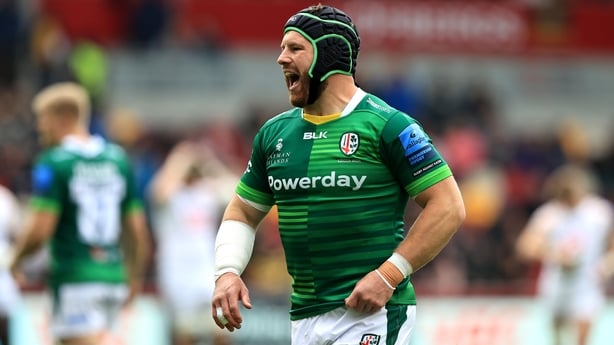
As the for next step, Gilsenan, who represented Ireland up to U20 level, believes "there is another chapter to this story, definitely."
The club has naturally always had a strong connection with Ireland but there was never any formal arrangements made.
"[There are] no plans currently to invest in rugby outside of Ireland," the IRFU told the Telegraph during the week in response to a query about a possible collaboration.
The idea of the Irish union taking over the club as a fifth province to ease some of the logjams that only having four professional outfits entails, has long been floated but it's a prime example of something that is easier said than done.
Last year, high performance director David Nucifora said: "Down the track, you have to look at everything", in relation to getting more game time for younger players.
However, as it stands currently, it's probably not the most attractive offer for the IRFU, who are likely to focus their current resources to run the four provinces and now, two national teams.
It's a ship that may have already sailed.
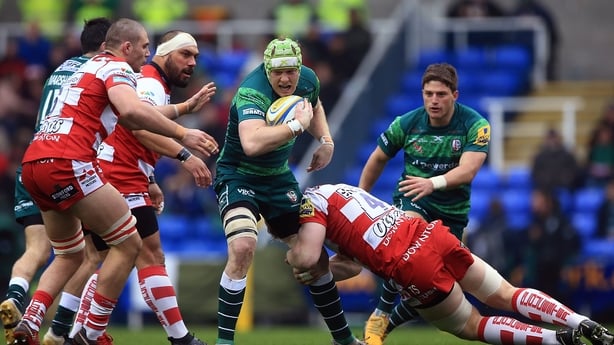
"I don't know if there is any substance to it but I think it's a very exciting prospect," said Gilsenan.
"Because I know when I was there, Bob [Casey, former player and chief executive from 2015 to 2017] was trying very hard to formalise some sort of a partnership rather than it just the name.
"[He wanted to] organise it so you get young people who weren't getting the game time they should be, that London Irish be used as an outlet to blood those players and get the more experienced guys who maybe aren't first-choice international players to help with the game and the brand of London Irish.
"It didn't really happen. Obviously, when they brought Declan Kidney in, and Paddy [Jackson] and Sean [O'Brien], that would have helped a lot but it was still never formalised.
"It was still very much London Irish on their own and it wasn't a club where you could legitimately come over and play and still put yourself into the equation for playing for Ireland.
"Logistically, there's a lot in order for that to be viable but if it did in the future, that would be a very exciting prospect.
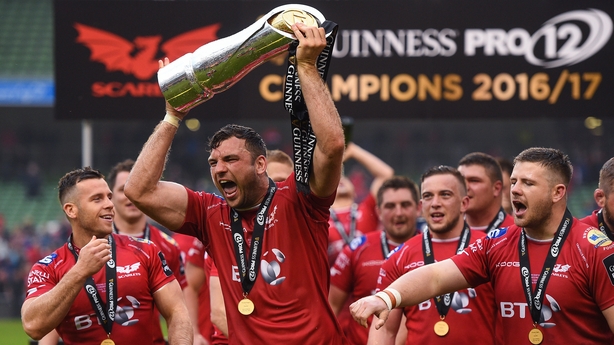
"You look at someone like Tadhg Beirne (above). He went and earned his stripes and proved himself at the Scarlets and we very nearly lost him to the WRU. Thankfully, that didn't happen because he's pulling up trees for Munster and Ireland now.
"We could have lost him because of that arrangement but if you have that safety net of going and getting exposure in a new league and learning new things and getting exposure in a very competitive league at that.
"Guys don't want to leave because you are in the pathway and it's a risk to leave. I left and the hope was always to get back in and play for Ireland like everyone sets out to do when they go into the academy.
"It was a risk but I had a great career at London Irish and it paid off in other ways, like I'm very happy living in London here but it didn't pay off for what I set out to do.
"Tadhg's example, where he went off to do the exact same thing and it's paid huge dividends.
"The risk becomes less if you've got some sort of formalised relationship there and it's considered a fifth province but I do feel that it's a lot of speculation at the minute.
"I think there is another chapter to this story, definitely.
"The administrators are going in there to outline what's what but I think they can play rugby again in one or two years. The amateur team are three or four divisions down, they could start funding them instead of the pro team."


